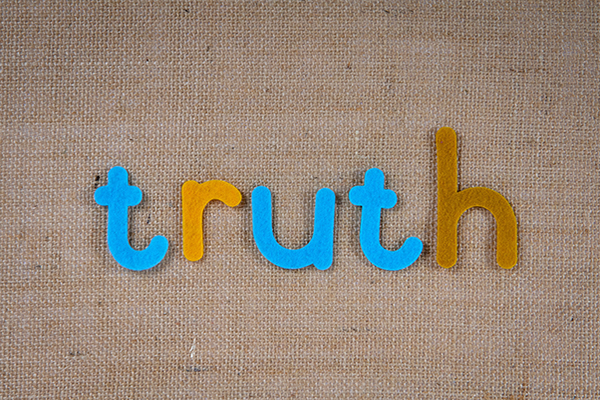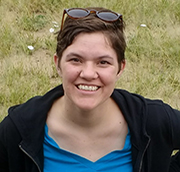by Sara Olson-Smith
Our memories are strange things. When we think we’ve got things filed nicely away in the back of the drawer, something yanks them out, scattering piles of memories like paper across a desk. Sometimes those rediscovered memories are a blessing, like when a song on the radio reminds you of a fabulous road trip, or the smell of baked goods pulls you into your grandmother’s kitchen.
Other times, it’s more traumatizing. It is disorienting and painful to have them brought out of the dark. Those memories are hidden to protect us, and it can hurt to have them triggered. For survivors of sexual assault and other gender-based violence, the news headlines and national dialogs of these last years have been like having those drawers dumped out, over and over again.
Because more and more of these stories have been told, there has been a reckoning in these past months. It was not assumed that Harvey Weinstein would face any consequences to his decades of aggression and violence, he was jailed and awaits guilty verdicts.
Hearing Christine Blasey Ford bravely tell her story, even as her voice shook, gave so many of us the courage to tell experiences that we’ve never shared. The #metoo movement’s truth-telling has meant honest conversations between partners, an openness of what women (and men) experience. It is no longer assumed the perpetrators could act with impunity.
But these small advances have come at a cost. The burden was carried mostly by women like Dr. Ford, who risked everything to tell their story and others who spoke their truth, knowing their own lives would be exposed. And for survivors (of all genders), it also means being confronted with our memories and trauma, over and over again, as we hear those stories and take in the news.
As hard as it is, I am convinced that it is worth it. The more we tell our stories, the less shame we have. The more the truth is shared, the more it will be believed. The more we dare to shine a light on the experiences of survivors, the less they can be ignored.
A few years ago, I listened to a woman speak at a fundraiser for one of the agencies in my community that provides support and care for survivors of sexual and domestic violence. The speaker, Kelly McReynolds, shared her own story of rebuilding her life after rape. Kelly used her platform to call out a culture where assault is pervasive and normalized, where power is unchecked, and women are seen as objects and not people.
Near the end of her talk, she gave all of us some pretty clear instructions, “if someone tells you their story, their experience of assault–this is what you say: I believe you. It’s not your fault. You are not alone.”
Still, nearly four years later, those words have such power. Maybe more, because they’ve given me the courage to face my memories, which I’ve kept hidden. And they’ve taught me to be a better advocate and listener, as more stories have been shared in these days of #metoo. We are seeing the transformation that comes–not just to survivors, but to our culture–when we repeatedly say: “I believe you. It’s not your fault. You are not alone.”
Those simple statements of assurance and compassion and truth have such power. They echo words for our sacred scripture. I heard in her voice, words of the Apostle Paul, “weep with those who weep” and “bear each other’s burdens.” She spoke in ways that made tangible the prophet Micah’s words to “do justice and love mercy and walk humbly.”
I could almost hear Jesus whisper those words to that unnamed woman, surrounded by the men who were ready to stone her for her supposed adultery. “I believe you. It’s not your fault. You are not alone.” Maybe we can imagine the Good Samaritan kneeling next to that person beaten and robbed and left on the side of the road, “I believe you. It’s not your fault. You are not alone.”
As followers of Jesus, this ought to be our script when we are confronted with stories not just of sexual assault, but every kind of injustice, violence, and oppression that seeks to dehumanize, denigrate and destroy God’s precious people. As we listen, we can say “I believe you” and, in doing so, move from silence and doubt toward truth and trust. We can say, “It’s not your fault” and help to replace shame with worthiness. We can live the promise “You are not alone” and step forward together from isolation toward belonging.
 Through the courage of survivors telling their stories, our culture is (slowly) changing. We are creating a world where survivors are beginning to trust that if they speak, they will be believed. Their experiences are not to be hid and locked away in the shame-filled recesses of our memories but heard and believed and surrounded by a community of care and compassion and transformative anger. Change, though still small, is happening. Voices are being heard.
Through the courage of survivors telling their stories, our culture is (slowly) changing. We are creating a world where survivors are beginning to trust that if they speak, they will be believed. Their experiences are not to be hid and locked away in the shame-filled recesses of our memories but heard and believed and surrounded by a community of care and compassion and transformative anger. Change, though still small, is happening. Voices are being heard.
And because of this, things are shifting. Women are speaking and being believed. As Rebecca Solnit wrote in the New York Times: “The most important change will be found in what we cannot measure — all the crimes that don’t happen because would-be perpetrators fear the consequences, now that there are consequences. All the potential victims know that if they speak up, someone might hear them and heed them. I want more than that, though: I want a society where the desire and entitlement to commit sexual violence wither away, not out of fear but out of respect for the rights and humanity of victims.”
We’re not there yet. We’re so far from there. But as followers of Jesus, we are part of building this vision of God’s reign. Our faith demands that we keep working together, so violence withers away, and everyone can live abundantly with joy and without fear. And until we get there, we can be people who listen and bear witness, saying, “I believe you. It’s not your fault. You are not alone.”
 Sara Olson-Smith serves as an associate pastor at St. Paul Lutheran Church in Davenport, Iowa, where she lives with her spouse and two young children. While not at church (or on zoom meetings!) she enjoys hikes in the woods, family bike rides, baking bread and quilting.
Sara Olson-Smith serves as an associate pastor at St. Paul Lutheran Church in Davenport, Iowa, where she lives with her spouse and two young children. While not at church (or on zoom meetings!) she enjoys hikes in the woods, family bike rides, baking bread and quilting.


Thank you, powerful words that offer hope.
Pastor Sara! Thank you! I believe you! Your very brave and as you know unfortunately we are not alone. We need to keep telling our stories and especially from the pulpit.